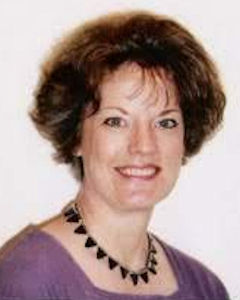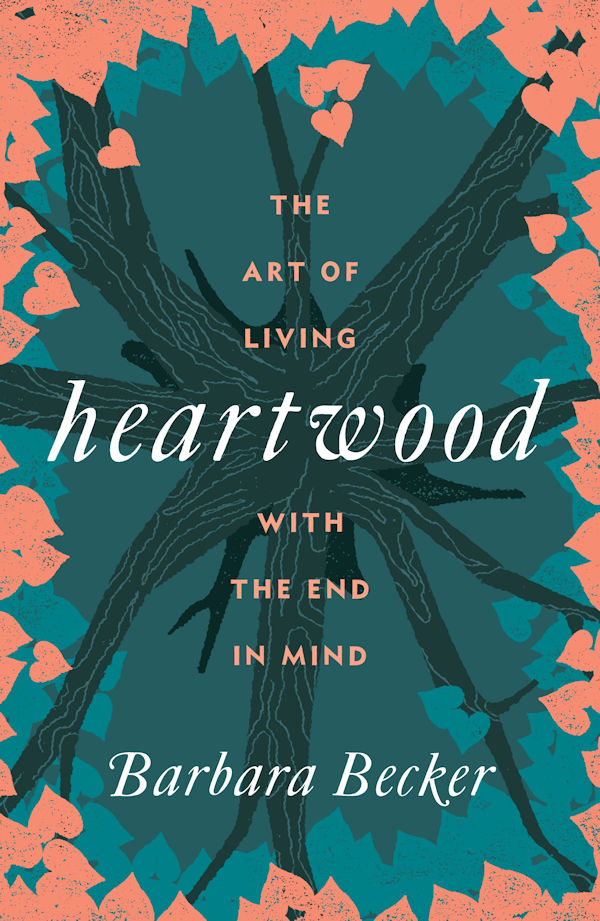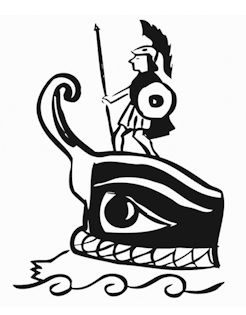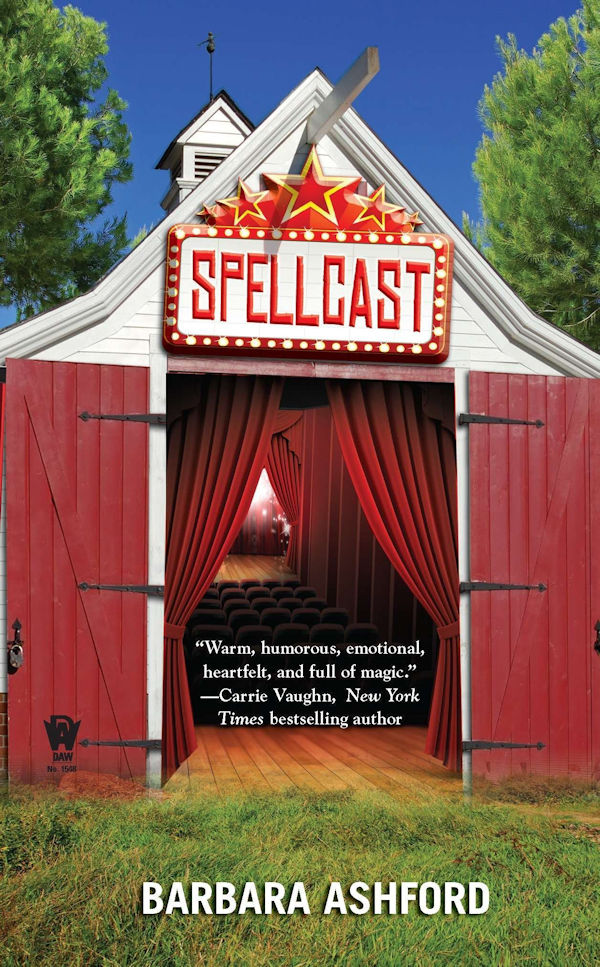 Today, I get the amazing opportunity to interview fellow fantasy author Barbara Ashford [Barbara Campbell] about her books and being an online class instructor at the Odyssey Writing Workshop.
Today, I get the amazing opportunity to interview fellow fantasy author Barbara Ashford [Barbara Campbell] about her books and being an online class instructor at the Odyssey Writing Workshop.
Enjoy!
To start, tell us a little bit about yourself.
I grew up in Delaware and now live outside New York City. I started my professional career in educational administration but ran away to the theatre when I was twenty-five. That’s where I met my husband (we starred opposite each other in the play Bedroom Farce) and began a career in theatre and writing that continues today.
You do so many things (actress, lyricist, instructor, etc.) but when did you start writing?
I started writing in elementary school and was particularly prolific in junior high. I wrote short stories and song parodies, dreadful poetry, and “novels,” including my (alas, unfinished) World War II romance Claudine. At twelve, I knew little about World War II and less about romance, but that didn’t stop me! Instead of starting with Chapter 1, I began with the movie trailer: “She was a nurse. She was a spy. She was a woman among women. She was CLAUDINE. And every man she met loved her.”
As an adult, I focused on acting and later, on writing for musical theatre. I was nearly forty before I returned to writing fiction.
You’ve written quite a few fantasy books, what made you start writing in that genre?
 I was between musical theatre projects and had a dream that grew into an historical fantasy set in Dark Age Scotland. The story poured out of me in three months. (Giving me a completely false idea of how easy it was to write a novel.) The book got me an agent, but never sold.
I was between musical theatre projects and had a dream that grew into an historical fantasy set in Dark Age Scotland. The story poured out of me in three months. (Giving me a completely false idea of how easy it was to write a novel.) The book got me an agent, but never sold.
After that, I started and stopped any number of novels. I had just started working on a new one—which eventually became Heartwood, my first published novel—when I got a postcard in the mail about the Odyssey Writing Workshop. I applied and got in and three years later, Heartwood was picked up by DAW Books.
How do your books go against the grain of the fantasy genre?
The settings of both series are a bit off the beaten track. Trickster’s Game was set in the Iron Age. It dealt with a nature-worshipping tribal culture in conflict with a more technologically advanced one. The series takes place over thirty years. Each of the books was pretty dark in tone. I put my poor characters through hell and killed off most of them by the end of the series.
After Trickster’s Game, I was mulling over various ideas for my next project when my editor at DAW said, “You should write something that draws on your theatre background.” God forbid, I think of that myself!
That conversation led to Spellcast and Spellcrossed, contemporary fantasy-romances set in a magical summer stock theatre. I drew heavily on my experiences as an actress and basically cannibalized my life to create my protagonist. Maggie is so much like me that friends who read Spellcast had trouble distinguishing between us.
What made you want to become an instructor?
I’d been working for the Odyssey Critique Service for several years. I really enjoyed reading the work of unpublished writers and helping them bring their vision for the story to life. When Jeanne Cavelos—the founder and director of Odyssey—began offering online classes and asked me to teach, I jumped at the chance.
Tell us a little bit about the Odyssey online classes! How did you start with them? What kinds of classes do you teach?
 I’ve taught three courses for Odyssey over the years. “Getting the Big Picture“—which I’m offering again in January—explores the building blocks at the foundation of every novel—premise, promise, theme, world, character, plot—and explores ways to deepen the connection between those elements to create a more unified and powerful story. I also teach courses on scene structure and bringing greater emotional resonance to your storytelling.
I’ve taught three courses for Odyssey over the years. “Getting the Big Picture“—which I’m offering again in January—explores the building blocks at the foundation of every novel—premise, promise, theme, world, character, plot—and explores ways to deepen the connection between those elements to create a more unified and powerful story. I also teach courses on scene structure and bringing greater emotional resonance to your storytelling.
Odyssey’s online classes are geared toward writers of science fiction, fantasy, and horror. All of them are intensive, with students submitting their work and critiquing the work of others. It’s a great opportunity to take a deep dive into your writing, to get feedback, and to try out new techniques. One tool I’ve incorporated into all of my courses is using beats to fine-tune character emotions and ensure you’ve fully captured the moment on the page. It’s a technique from my acting days.
Jeanne keeps class sizes small so instructors can give each student attention. I meet with every student individually and critique every homework assignment. We strive to create an atmosphere that is supportive yet challenging. And we encourage discussion of class topics and writing in general, which helps build a sense of community. You can read more about the 2022 online classes here.
What was it like, doing online instruction during the pandemic?
Teaching online courses for Odyssey really helped me make the transition from the classroom to remote teaching for the 2020 Odyssey summer workshop (where I was a guest lecturer) and my college-based creative writing courses. I worked hard to avoid being a talking head and tried to incorporate as many opportunities as possible for interaction and discussion to keep students engaged.
Some authors really struggle with one aspect of writing (editing, setting, dialogue, etc.), did you create your classes because you also struggle with those things? Why teach about “getting the big picture/revising your novel”?
 I struggled a lot with plotting my first novel. Character and dialogue come easily to me, probably because of my background in acting. But every writer has different strengths and weaknesses. Some struggle with building rising tension or a plausible chain of cause-and-effect in the plot. Others struggle with creating complex characters. Some may be great at envisioning the world of the story but have trouble showing that world on the page without resorting to infodumps.
I struggled a lot with plotting my first novel. Character and dialogue come easily to me, probably because of my background in acting. But every writer has different strengths and weaknesses. Some struggle with building rising tension or a plausible chain of cause-and-effect in the plot. Others struggle with creating complex characters. Some may be great at envisioning the world of the story but have trouble showing that world on the page without resorting to infodumps.
I touch all those bases in “Getting the Big Picture” because I believe that revising a novel requires more than simply polishing your manuscript. If the plot meanders and your characters are flat, polishing your prose won’t help. You really need to take a hard look at your story, understand how the various building blocks of your novel relate to each other, identify weaknesses, and make the necessary changes to strengthen the story. That can make the difference between a promising novel and a published one.
I learned that when I was revising Heartwood. My first draft was a wandering 180,000 words. I ended up throwing out nearly two-thirds of the first draft during my two years of revisions. It was a long and difficult process, but it really helped me focus on the heart of the story I wanted to tell. I’m convinced that if I hadn’t been willing to make big changes, that novel would never have been published.
What’s behind the camera when you’re instructing?
Bookcases crammed with books. Photos of two rainy New Orleans streets. And a stuffed lemur hanging from a wall lamp!
What do you like to do when you’re not teaching?
Watch old movies on TCM. Play the piano. Watch travel programs that take me to places I haven’t been able to go to during the pandemic. And read, read, read!
What are you currently reading?
Chuck Wendig’s The Book of Accidents. All the elements of good horror—a family with dark secrets, a boy with special gifts, a creepy doorway to alternate realities. Plus, unexpected moments of humor. It’s a great book to study for pacing.
Anything else you’d like to add?
Just thanks to you for giving me the opportunity to chat. And to Odyssey, which changed my life as a writer and as a teacher. If I hadn’t attended the workshop all those years ago, I wouldn’t be having this interview with you today!
We would like to thank Barbara and Odyssey again for the opportunity for an interview! You can learn more about Barbara’s other works on her website. And you can learn more about Odyssey’s workshops for 2022 on their website.

